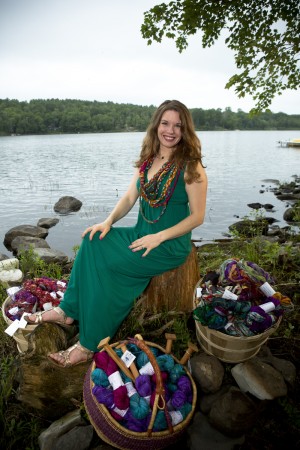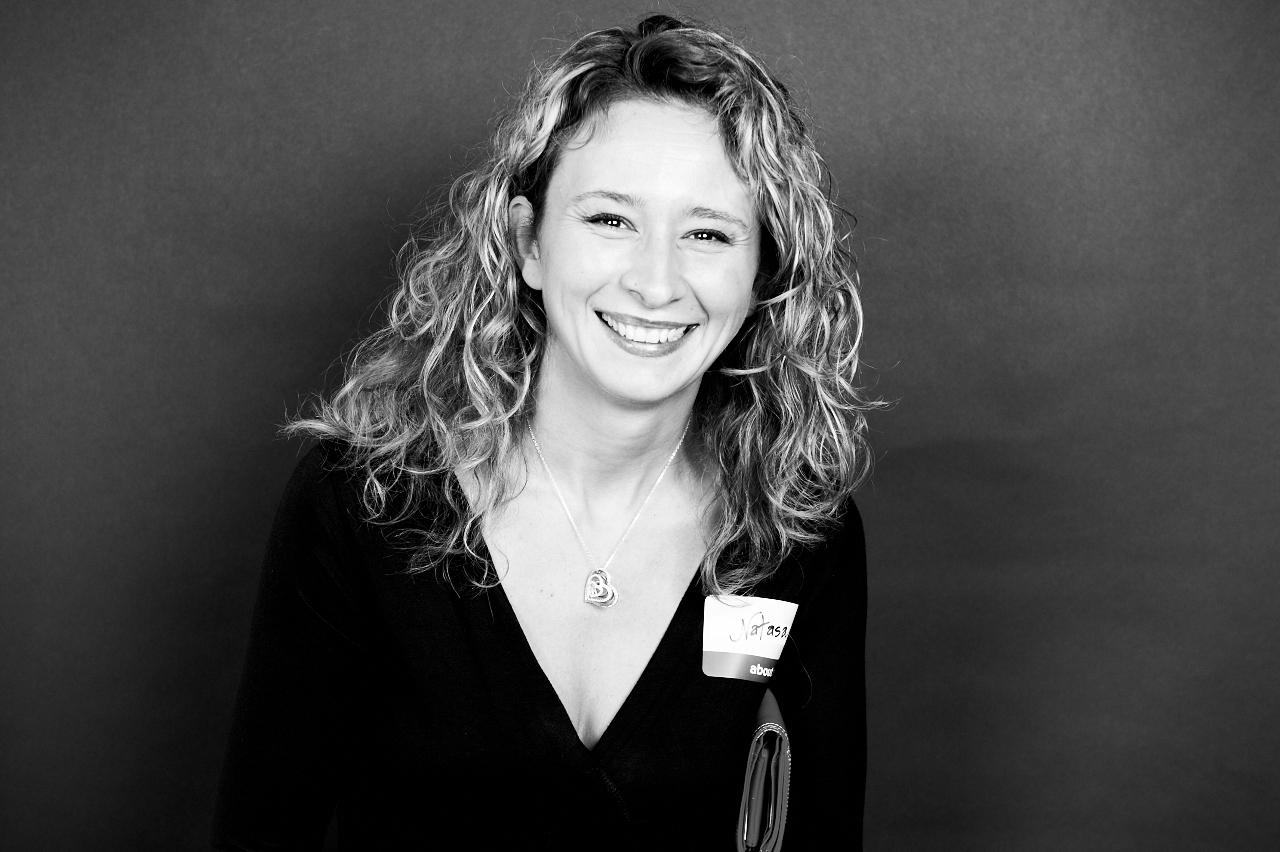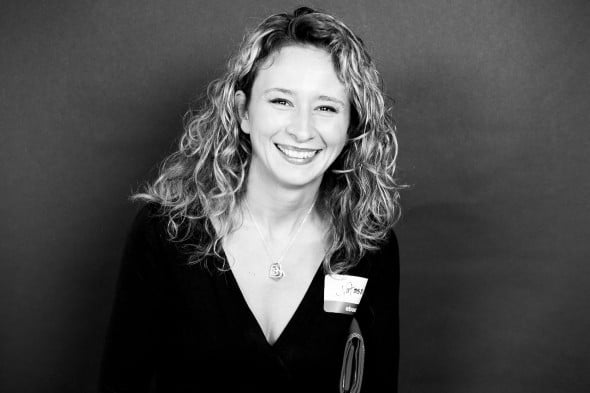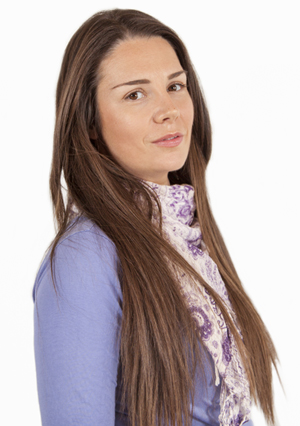
Nataša Bajić
Our interview begins, on this unusually warm September morning, with the bold clacking sound of a pair of black stilettos. We are about to meet Milica Dobrenov and Nataša Bajić, the co-founders of Four Dots, a multinational inbound marketing company, who walk into their office premises at 8 o’clock on the dot.
At the very first glance, they seem like an unlikely pair: one of them the epitome of sporty elegance, the other opting for a dress code straight from the pages of Vogue. Nevertheless, both have the same determined look in their eyes and a great big smile on their face, motivated to tackle a new workday. Without a moment to spare, we dive straight into the question and answer portion of our program.
You both look very fresh and awake, could you tell us your secret? Do you have an established pre-work morning routine?
Nataša: I have a one-year-old boy at home, who runs like a Swiss watch – he is up every morning at 6 a.m. sharp! He takes after me in that sense, as I, too, am an early riser. We never skip breakfast in our home, and since my husband somehow manages to get up even before I do, I have a meal waiting on the table. The three of us always get the chance to eat together in the morning and go through our schedules. The babysitting timetable, work, playtime – everything needs to run smoothly. I am happy to say that we function like a well-oiled machine.

Milica Dobrenov
Milica: As I always say to my son, the early bird catches the worm. My family also gets up pretty early, one of the reasons being that I love helping my son get ready for kindergarten. My husband and I have a rule, we never let him leave the house before he finishes his breakfast. Even though I love preparing one for him, for me, that first cup of coffee is what gets me going. I sip it slowly, while picking out my clothes, ironing and helping my son pack. I always drive him to kindergarten since it is on my way to work. There’s an amazing little bakery next door, which sells the most amazing bagels, so I make it a point to stop by. That way I arrive at the office a little before 8 and have my breakfast in the office while I go through my to-do list.
Was it challenging so far being a successful woman in the digital marketing industry?
Nataša: It’s interesting that you ask that. We haven’t really paid much attention to it, but when you come to think of it, it seems that a lot of new and emerging IT-related industries are in fact founded by men. Digital marketing is no different. Most influencers in our line of work are men, but we hope to see this change in the future.
Milica: …and we hope to be a big part of that change! Digital marketing is all about creativity and finding solutions to seemingly unsolvable problems – I don’t see why women wouldn’t be involved in the process. It’s no longer a man’s world out there, just look around – the CEOs of some of the most successful startups are women. And I think that I speak for both of us when I say that we love our job, and strive towards finding a good team of people who will be equally driven to contribute to our company’s stellar success.
Nataša: What we’re trying to say is that there aren’t any industry-specific challenges. It is something people encounter across all fields of business. We did have quite a few obstacles to overcome, but luckily, that’s all in the past. Our company has experienced a significant growth, so significant that we kept employing new teams of people at such short intervals that we were unable to predict the size of the office space we needed. As a result, we had to move a couple of times, which wasn’t an ideal situation, but the key is to stay calm and take it one day at a time. Every problem has a solution, you just have to be crafty enough to get there.
Was it difficult building such a successful startup in a country where digital marketing has not yet taken off?
Milica: Yes and no. On the plus side, it has enabled us to literally start our business from scratch. Also, there is one more fact many often forget to take into consideration – hard-working people!
Nataša: Definitely, I couldn’t be more proud of our team. But when it comes to attracting our first clients, we were focused on the the international market, as at the time, doing local SEO would have been quite risky and maybe we wouldn’t have had such a great success. For this reason, we decided to open offices around the world that would help us attract more international clients.
Milica: We are also doing our best to educate local companies on the importance of inbound marketing, hoping that in the future we can help more local businesses grow and achieve international success. That’s what we love about SEO – we’re able to help aspiring entrepreneurs from a wide range of industries. Serbia is still a developing country and is fairly unfamiliar with the concept of startups, but as we have already mentioned, we are hoping to see a change for the better.
We understand that your company is multinational – how do you cope with clients from different cultural backgrounds?
Milica: In business, the client comes first. That was our motto from the beginning and like in any other line of business, working with people has its challenges, but I would say that in our niche it’s definitely a bit more difficult to handle the variety of demands.
Nataša: I agree! We devise individual strategies for every new client, taking into consideration a number of things: the industry they operate in, the audience they are targeting, their country of origin and all of their specific requests.
Milica: Research is key. In order to achieve global success, it is important to acquire… Well, global knowledge. Familiarize yourself with different cultures, their customs, paying special attention to different markets and customer profiles. For example, a campaign that is hugely successful in the U.S. would not necessarily achieve the same level of success in Australia, or anywhere in Europe.
Nataša: Exactly, that’s why we always concentrate on accommodating our client’s individual needs. The fact is, we learn as we go and do our best to always be prepared for anything our clients throw our way. That is one of the secrets of our success we are happy to share.
Is it possible to find balance between your personal and professional life? When do you draw the line and say that you’ve done enough for the day and it is time to focus on your family?
Milica: That’s a tough one. When you are at the head of a startup, it can at times be quite hard to find the ideal work/personal life balance. However, going into this venture, I made the decision that no matter what – family comes first.
Nataša: I couldn’t agree more. We were really young when our careers began and we knew from the start what it takes to succeed, but at the same time I am not willing to sacrifice being a mother in the process. I knew I could do both and… well, I was right!
Milica: Luckily, we founded our company with two colleagues, Radomir Basta and Goran Bogunović, who have not only proven to be highly supportive of our plans for the future, but have always been fully dedicated to making all of our plans a reality. Hence the name Four Dots. Thanks to the strong relationships we have and a huge amount of understanding on all sides, we were able to take some time off when we had our boys, without having to worry whether our company will continue to thrive. You know, at the end of the day, it feels good to just get out of these heels and under the blanket, to spend an entire evening watching The Lion King for the 42nd time.
Any tips for women who are embarking on a startup journey? What were some of the major obstacles that you had to tackle?
Nataša: Don’t overthink it and don’t doubt yourself – just have faith in your idea and go for it. If you start all negative and think about all the possible obstacles, there’s never going to be “the right time”.
Milica: Trust us, there’s no right time! It’s only natural to be afraid of how it’s going to affect your family life, because, let’s face it, it is more difficult for women to incorporate a family into their career path than it is for men to do the same.
Nataša: Finances are always one of the most common challenges. But no matter how often we hear it raised as an excuse, people keep forgetting that success doesn’t happen overnight! You wouldn’t believe the size of the apartment we started our company in (both laugh). I believe it was smaller than the office we are in right now!
As 9 o’clock approaches, the offices are filled with the sound of clanking coffee mugs and subtle keyboard tapping – another successful day at Four Dots has begun.
Sarah.Green is a tech journalist and blogger covering the latest trends in the world of technology and business. Interested in startups, business innovation and entrepreneurial ideas, Sarah looks for the writing inspiration in the great work of tech industry professionals.

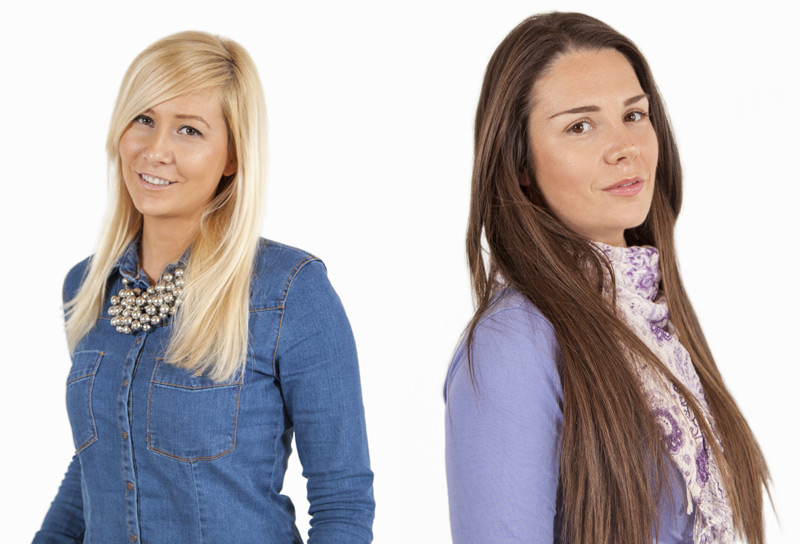

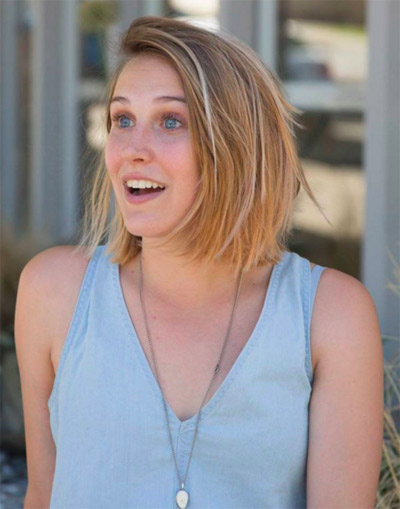 Though she only owns one pair of heels, Katie Fritz heads up brand and marketing efforts as the Marketing Manager at
Though she only owns one pair of heels, Katie Fritz heads up brand and marketing efforts as the Marketing Manager at 